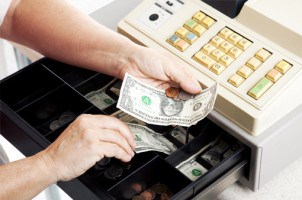In almost every neighborhood, at least one resident is known for “renting” merchandise from stores. Some refund abusers have purchased ticket guns to reattach price tags to clothing that was only worn once to that party. Some neighbors “rent” tools to use on weekend projects, while others upgrade to the latest technology by refunding last year’s model and then purchasing the newer model. Retailers’ quest for competitiveness and superior customer service has opened the door to retail refund fraud and abuse, not only by consumers who take advantage of retailers’ good will, but also by employees and professional thieves, who sometimes make significant amounts of income from refund schemes.
Multiple Types of Retail Refund Fraud
The following actual cases of retail refund fraud and abuse illustrate the types of losses incurred daily by retailers.
Internal Refund Fraud
A loss prevention manager in Des Moines, Iowa, was reviewing the merchandise refund transaction slips for the previous day when he came across a $289 receipted refund transaction involving a lawnmower. He had spent the previous day in an uncomfortable security booth overlooking the refund desk, while observing the activities of a cashier suspected of stealing money from the cash register. He was puzzled by the receipted refund transaction of the lawnmower, because he was certain that he had not seen any customer approach the refund desk area with a lawnmower.
The investigation that ensued revealed that the service desk manager was processing high-dollar, receipted customer refunds as no-receipt refund transactions, keeping the receipts, and later using that receipt to process fictitious refunds and pocketing the money. The dishonest employee knew that loss prevention only mailed out refund validation cards on no-receipt refunds and did not pay much attention to receipted refunds. The investigation documented that this employee caused $186,000 loss over a seven-year period.
Another loss prevention manager in Denver, Colorado, initiated an investigation of a refund desk employee identified by exception reporting that indicated several irregularities. The investigation revealed that the employee was committing retail refund fraud via a variety of methods, including scanning the bar-coded price tags on merchandise left at the service desk from legitimate customer refunds and the scanning bar-coded sales receipts found in the parking lot or obtained by keeping the customer’s sales receipt and processing the legitimate refund as a no-receipt refund. The investigation evidentially found that this employee had fraudulently “earned” $106,000 over a 14-year period.
Professional Refund Fraud
An enterprising criminal-minded Chicago couple purchased equipment that allowed them to reproduce bar codes as well as print store sales receipts. Their illicit business involved printing the bar code from the $1.99 roll of shelf liner paper on sheets of adhesive-backed labels, taking the labels to the targeted store, and placing the counterfeit bar codes over the bar code on rolls of wallpaper with a retail price of $22.99. They would then purchase fifteen rolls of wallpaper, which would scan on the POS register for $1.99 each for a total of $29.85. They later removed the bogus bar code label and printed a receipt reflecting a purchase of fifteen rolls of wallpaper at $22.99 totaling to $344.85. Using the fraudulent receipt, they would then return to the store to obtain a refund. The couple repeated this process twice a day, 250 days a year, which generated a tax-free income exceeding $150,000 annually.
The California Alameda County District Attorney’s office filed criminal charges in 2003 against three illegal Irish immigrants involved in a similar bar code scam. In this case, a bogus bar code was used to significantly reduce the purchase price. The merchandise was later returned with the actual bar code. The refunds were made without sales receipts. These individuals beat the refund tracking system by verbally transposing numbers on the identification, which they read aloud to the refund cashier. These refunds were issued as gift cards, which were then sold at a discounted rate for cash.
According to the county newspaper, the police disclosed that $750,000 had been seized from bank accounts in the United States belonging to the three Irish immigrants, and that they had transferred $300,000 to a bank in Ireland on the day they were arrested.
Quick-Cash Retail Fraud
In a Detroit, Michigan, drug rehabilitation program group therapy session, a 14- year-old girl related how she became involved with drugs. She explained that when she was unable to score from friends, she would make a trip to nearby retail stores and would simply remove merchandise from the store shelves and take the merchandise directly to the refund registers to obtain the money she needed to buy drugs. She told the group that she has done this frequently for two years and had never been detected or confronted by store employees.
Accounting Refund Fraud
In Dallas, Texas, a retail store manager was caught creating bogus merchandise refunds and applying the money as a payment for bank-returned checks. It seems that his district manager had emphatically told him that he had to find a way to reduce bad-check expenses.
This article was excerpted from “Retail Refund Fraud and Abuse.”
